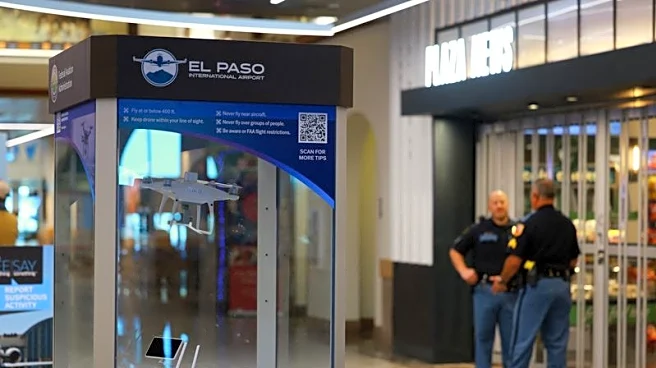What's Happening?
Companies are increasingly using artificial intelligence (AI) to manage hiring, firing, and employee oversight, leading to a shift in workplace dynamics. Employees are now finding themselves being hired
and managed by AI systems rather than human managers. This transition has left many feeling confused and anxious, as they navigate interactions with AI bots that simulate human personalities. A QA tester in Colorado shared his experience of being hired by an AI and reporting to an AI team, highlighting the surreal nature of working under AI management. The use of AI in these roles is becoming more common, raising concerns about the emotional impact on employees who feel judged by non-human entities.
Why It's Important?
The integration of AI into management roles is significant as it represents a fundamental change in workplace operations. This shift could impact job security and employee morale, particularly among younger generations entering the workforce. The reliance on AI for decision-making may lead to a disconnect between employees and their employers, as AI lacks the ability to interpret context and emotion. This could result in a dehumanizing work environment, affecting employee satisfaction and productivity. Additionally, the rapid adoption of AI in management roles may outpace the ability of workers to adapt, potentially leading to job displacement and a reduction in traditional job skills.
What's Next?
As AI continues to be integrated into management roles, companies may need to find a balance between automation and human oversight to ensure employee well-being. There may be increased scrutiny on the ethical implications of AI in the workplace, prompting discussions on how to regulate its use. Employers might need to develop strategies to address employee concerns and ensure that AI systems are designed to consider human factors. The future could see a push for transparency in AI decision-making processes and the establishment of guidelines to protect employee rights.
Beyond the Headlines
The use of AI in management raises ethical questions about accountability and fairness in the workplace. As AI systems make decisions that impact careers, there is a need to ensure these systems are free from bias and operate transparently. The cultural shift towards AI management may also influence societal perceptions of work and authority, potentially altering traditional power dynamics. Long-term, this could lead to a reevaluation of the role of human interaction in professional settings and the value placed on emotional intelligence.












